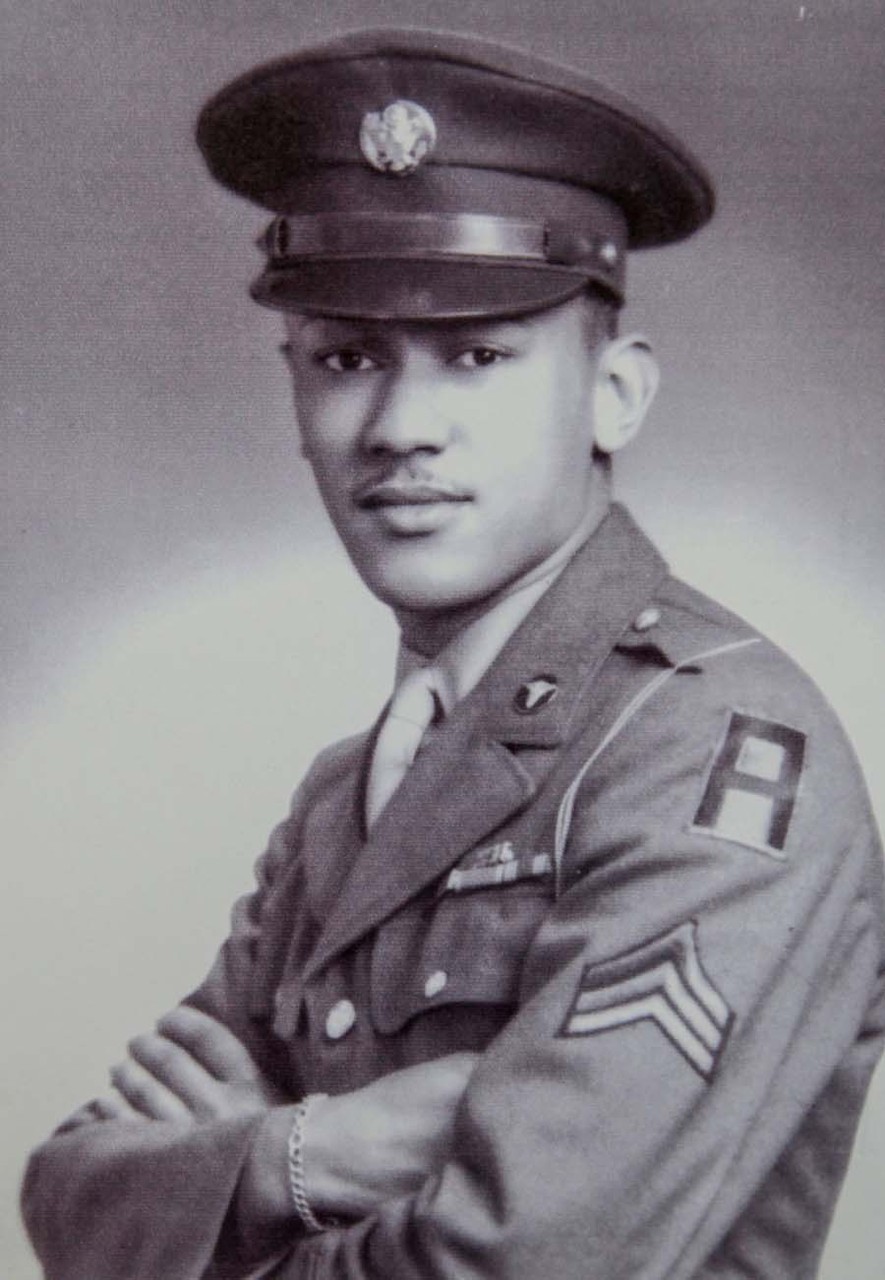Corporal Woodson was born in Philadelphia in 1922. He became a pre-med student at Lincoln University, but he paused his studies to enlist in the Army in 1942. Woodson attended the Anti-Aircraft Artillery Officer Candidate School but before finishing the training, he was told that there were no officer positions open to him. This was one of the many instances of discrimination he had to face within the army. Before finishing his course, Woodson was sent to go train as a medic and assigned to the 320th Barrage Balloon Battalion.
On 6 June 1944 the 320th Barrage Balloon Battalion was the only African American battalion to participate in D-Day, Woodson participated as well but had been attached to a British Division for the landings. Although he was wounded during D-Day, he treated many wounded soldiers, regardless of their skin colour. Woodson’s commanding officer nominated him for the Distinguished Service Cross. When his story reached higher command, General Lee felt that his actions merited the Medal of Honor, the highest military decoration in the United States.
Despite Woodson’s exceptional bravery he never received the Medal of Honor he was recommended for. Racist beliefs within the U.S. armed forces at the time of the Second World War seem to be the main reason for this. Woodson received the Bronze Star and Purple Heart for his actions and family members and politicians are currently lobbying for a posthumous Medal of Honor to give proper credit to this remarkable soldier.
